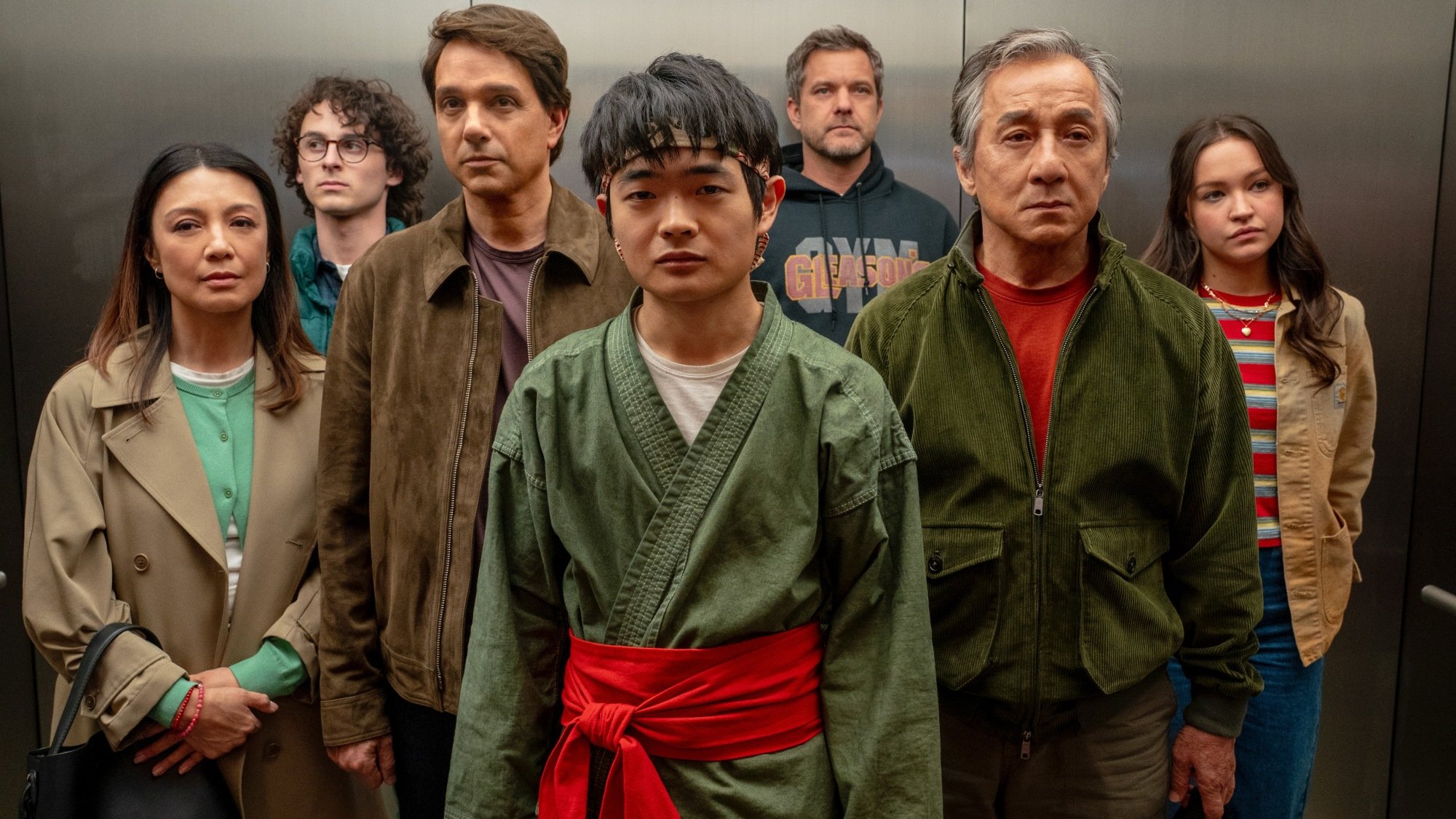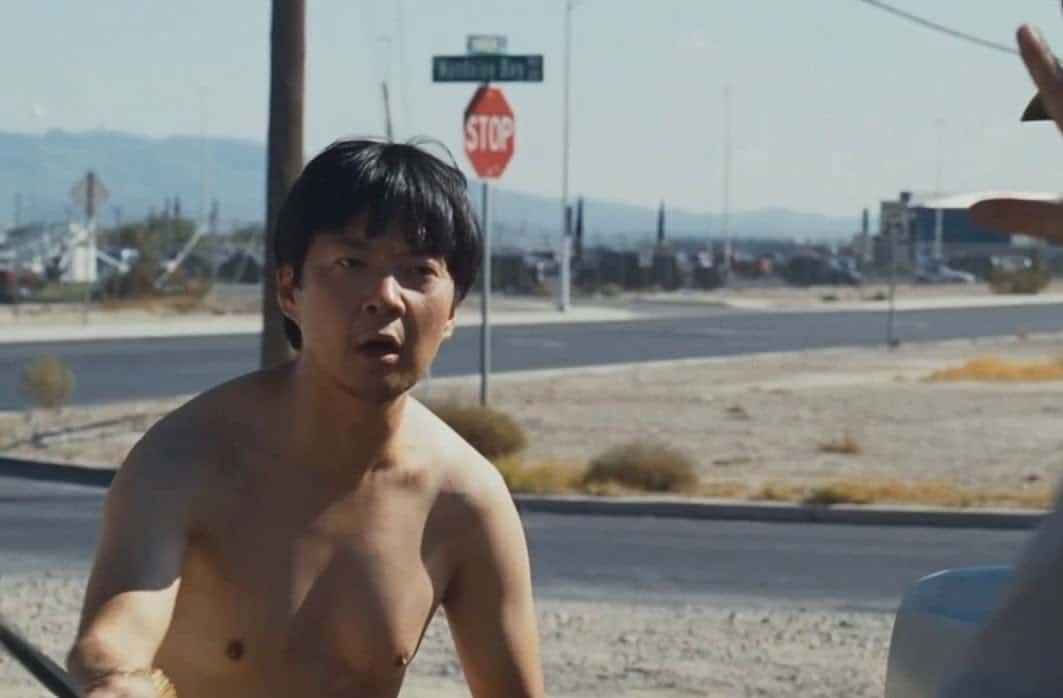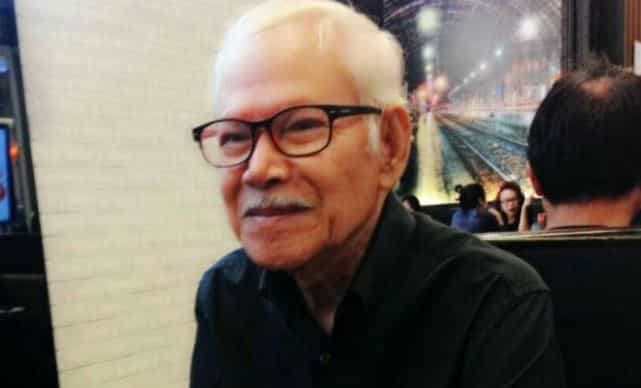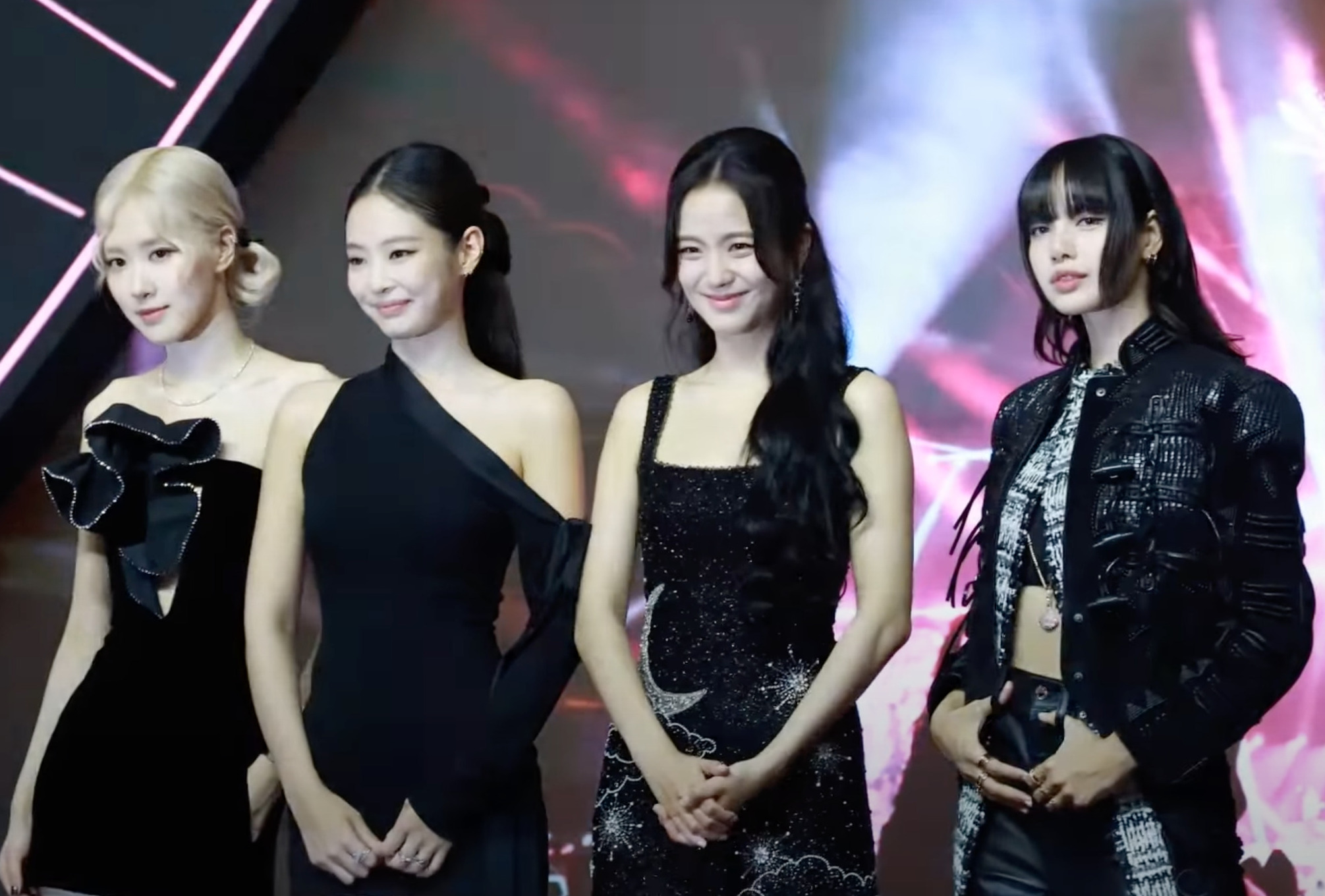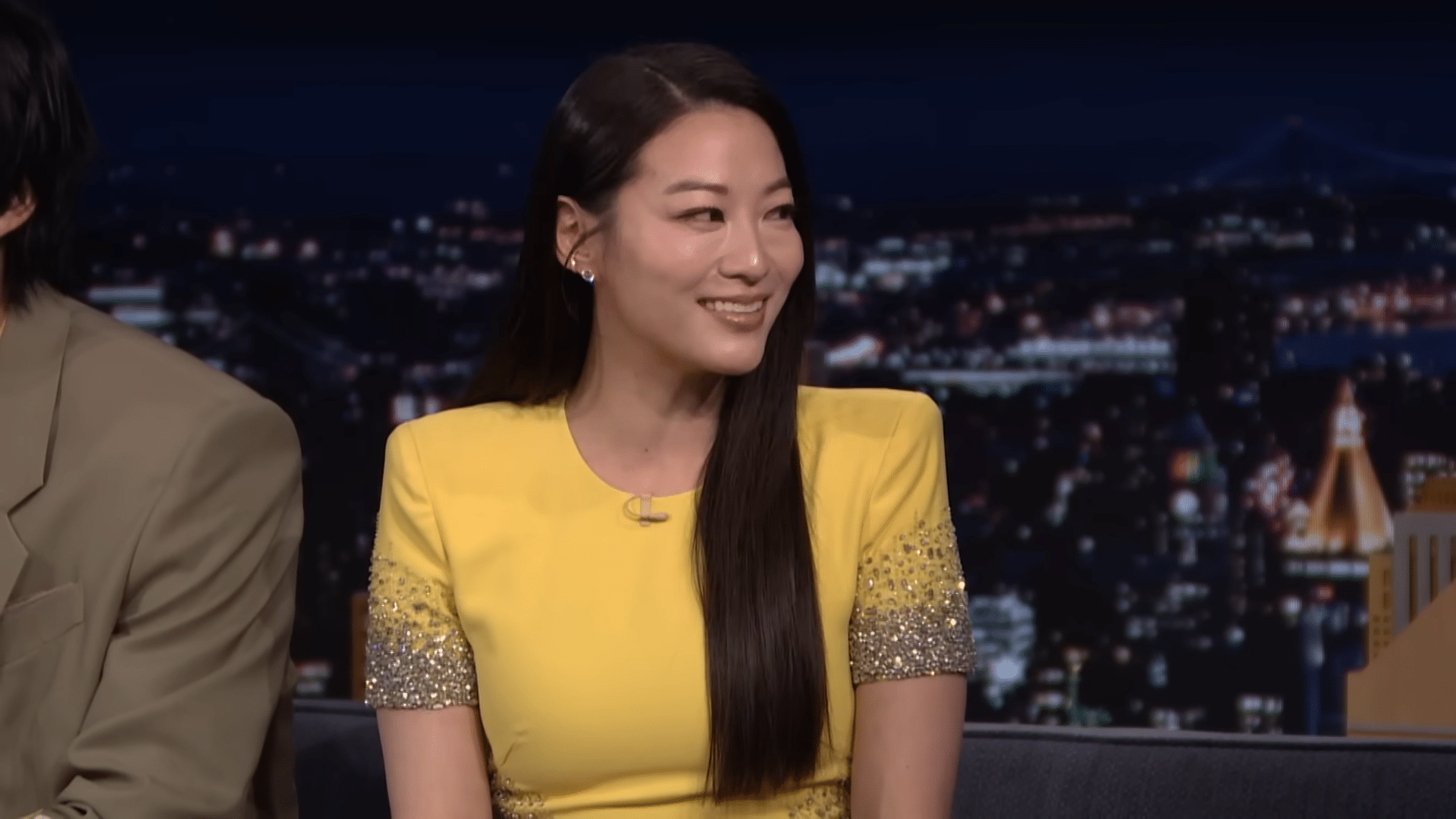When the original Karate Kid hit theatres in 1984, it quickly became a cultural touchstone. Daniel LaRusso, a scrawny East Coast kid, finds an unlikely mentor in his apartment building’s handyman, Mr. Miyagi, played by Pat Morita. You probably remember the iconic “wax on, wax off” scene. But beyond the memorable training montages, the franchise, now extending to the upcoming Karate Kid: Legends, offers a fascinating look at how Hollywood has, or hasn’t, evolved in its portrayal of Asian men.
Mr. Miyagi: A Complicated Legacy
Pat Morita’s portrayal of Mr. Miyagi earned him an Academy Award nomination, a significant achievement for an Asian American actor at the time. Mr. Miyagi was wise, patient, and had a deep connection to nature and martial arts philosophy. He stood as a counterpoint to many of the overtly villainous or emasculated Asian characters seen in earlier Hollywood. He became a beloved figure, inspiring countless kids, both Asian and non-Asian, to learn martial arts and embrace his stoic wisdom.
However, Miyagi’s portrayal wasn’t without its problems. He spoke in a thick, exaggerated accent and was often presented as an “other” – a mystical figure whose wisdom was exotic and only accessible through his guidance. Mark Lee, an Asian American writer, powerfully articulated the double-edged sword of this representation:
“On my planet, imitations of Mr. Miyagi were anything but affectionate… When I was growing up in Birmingham, AL in the 90s, where racism still flourished and the memories of the civil rights movement were not distant memories, I faced it frequently. Squinting eyebrows to make a ‘Chinese face.’ Accusations of ancestors being kamikaze pilots. And, most frequently, ‘Wax on, wax off.’ Said in an exaggerated accent, of course.” (Source: Overthinking It, “Remixing Miyagi: Apply the Wax, Remove The Wax”
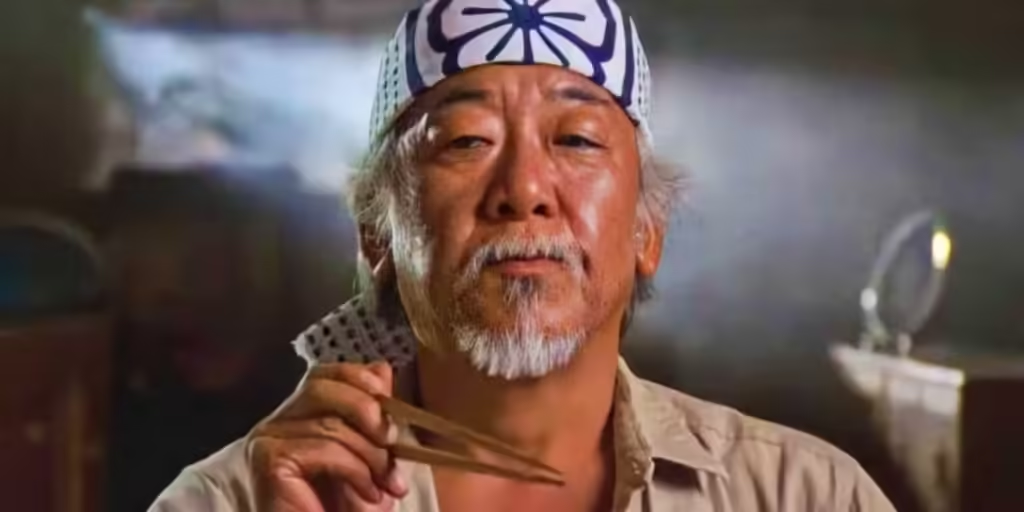
This highlights how, despite the character’s positive attributes, his “otherness,” particularly his accent, became a tool for mockery. For many Asian American children, Mr. Miyagi was one of their few mainstream media reflections, and that reflection was often distorted by stereotypes.
Jackie Chan and the 2010 Shift
The 2010 Karate Kid remake, starring Jaden Smith and Jackie Chan, offered a new take, moving the setting to Beijing and focusing on Kung Fu. Jackie Chan’s Mr. Han was still a wise mentor, a variation on the trope Miyagi established. But the film placed Chinese culture, architecture, and language at its core, grounding the martial arts in a specific, tangible cultural context.
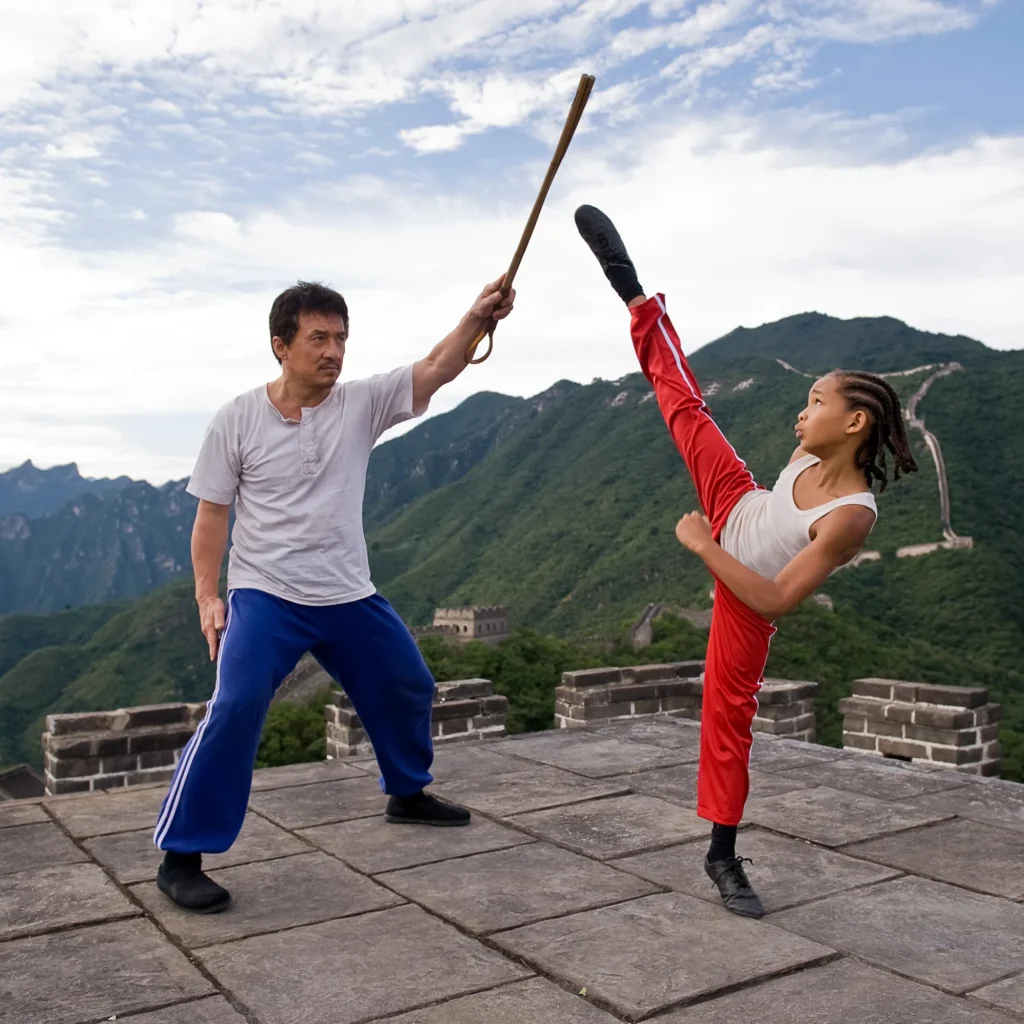
The film’s on-site shooting in China and its incorporation of Chinese folklore, like the story of the monkey monarch, showed a deeper engagement with the culture than the original. The University of Houston Libraries’ pressbook notes that the film was “heavily influenced by Chinese popular culture, with Kung Fu being a central element.” (Source: UH Libraries Pressbooks, The Karate Kid)
Read more: Jackie Chan on CGI Stunts: “Audience Is Numb” to Danger, Retirement “Never” Happening
This shift signalled Hollywood’s growing interest in the Chinese market and its potential for box office success, which, in turn, prompted a more specific cultural portrayal. While Mr. Han still fit the “wise Asian mentor” role, the cultural backdrop was far richer, moving beyond a generalised “oriental” mysticism.
‘Karate Kid: Legends’: A New Chapter for Asian American Leads
Now, with Karate Kid: Legends, hitting theatres this month, the franchise takes another significant step. For the first time, the central “kid” character is an Asian American male, Li Fong, played by Ben Wang. This is a major development, moving beyond the historical pattern of Asian characters serving primarily as mentors or antagonists for a non-Asian lead.
Li Fong’s story is complex. He’s a Chinese teen who moves to the East Coast, grappling with culture shock and the profound grief of witnessing his brother’s fatal stabbing in a kung fu match back home. This grounding in personal trauma and cultural displacement adds layers not always present in previous “kid” characters. He’s not just learning to fight; he’s learning to cope and find his place.
Read more: Ben Wang Talks Everything ‘Karate Kid’ and Living up to an Iconic Legacy
What makes Legends particularly compelling is its attempt to unify the franchise’s separate universes. Jackie Chan’s Mr. Han and Ralph Macchio’s Daniel LaRusso return, guiding Li Fong. This concept of “two branches, one tree” for the martial arts lineages hints at a broader theme of integration and shared heritage, challenging the idea that martial arts traditions are isolated or exclusively tied to one culture. It suggests that strength can be found in combining diverse experiences.
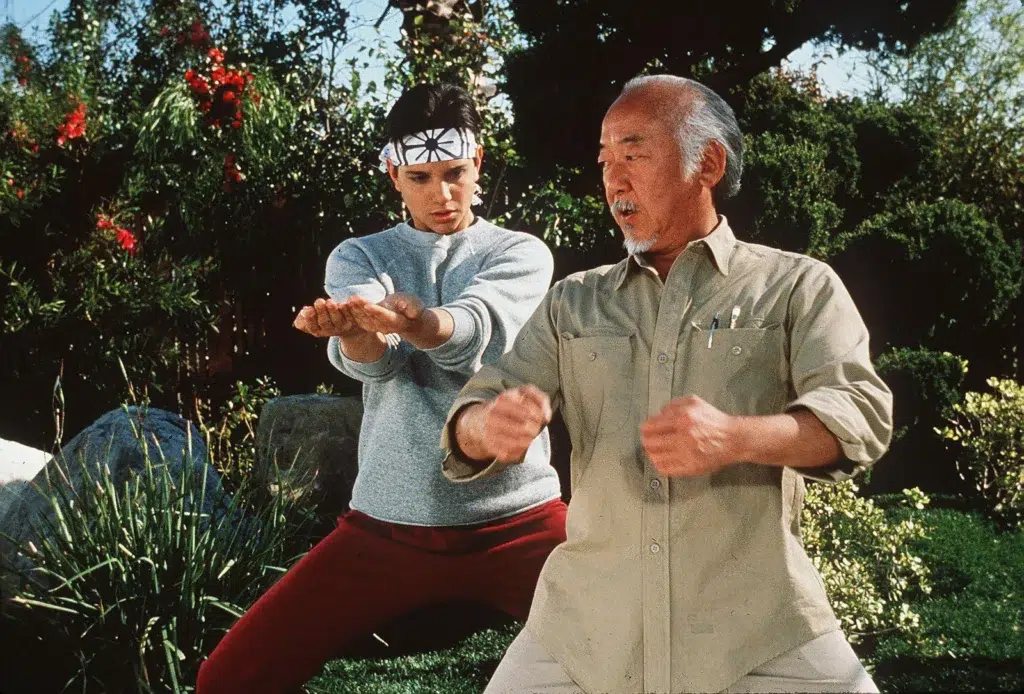
This film represents a significant moment for Asian male representation in Hollywood. For decades, Asian men faced limited roles, often stuck as villains, one-dimensional martial artists, or perpetual foreigners. Ben Wang’s lead role as a nuanced character with his own struggles and growth can serve as a powerful counter-example to these old tropes. It allows for a protagonist who is not just skilled in martial arts but also emotionally complex and relatable, providing a mirror for young Asian Americans who have long awaited their heroes on screen.

